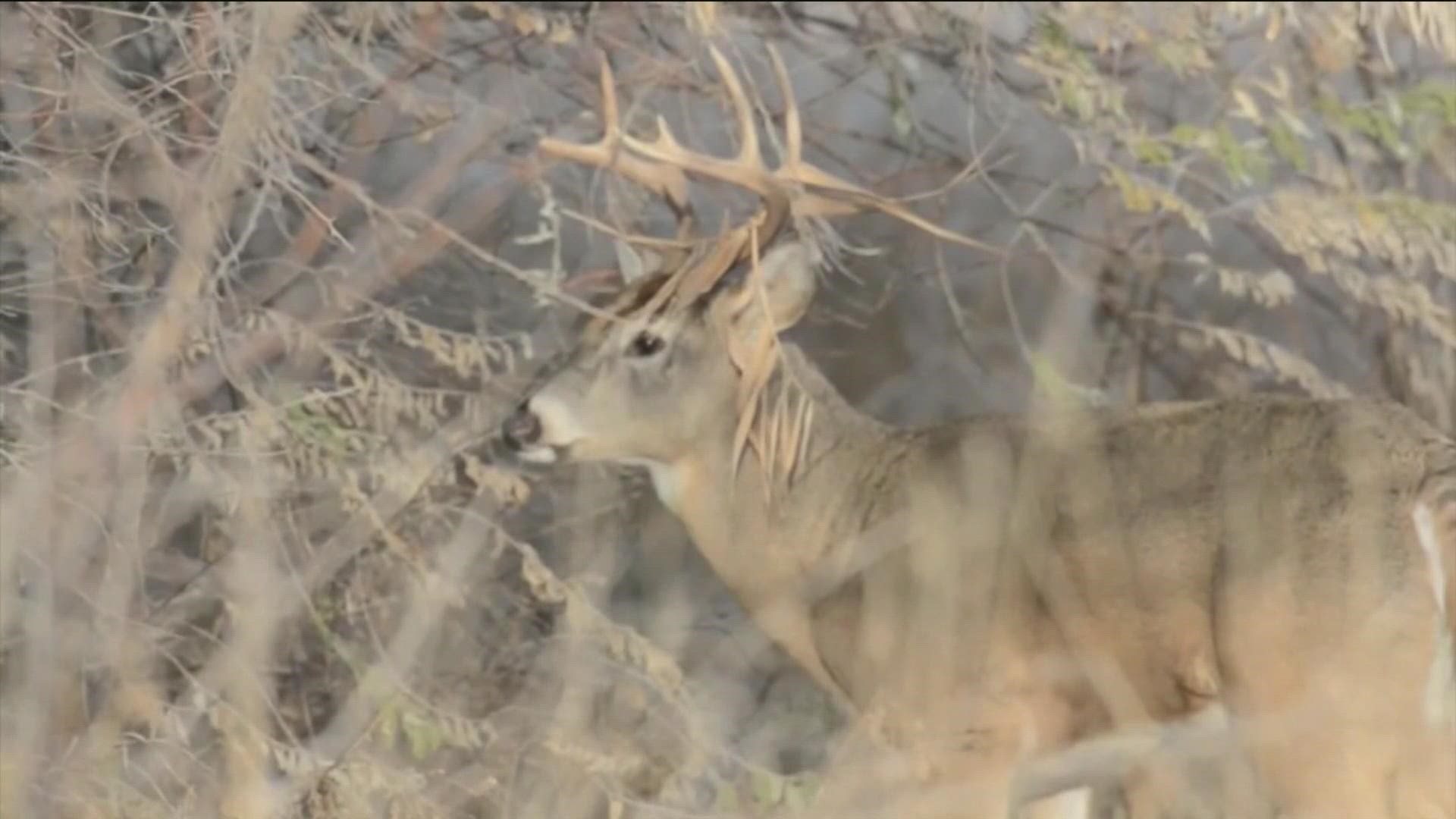BOISE, Idaho — The Idaho Department of Fish and Game (IDFG) is warning about an increase of Chronic Wasting Disease cases in deer this year.
Chronic Wasting Disease (CWD) is a neurological illness that occurs in animals, causing excessive salivation, drooping head or ears, tremors, low body weight and odd behavior like showing no fear of humans or a lack of coordination.
Animals can be infected for months or even years before exhibiting symptoms, according to IDFG. The disease is always fatal and there are no treatments or vaccines available.
CWD was first detected in Idaho last year, when five animals, including mule deer, white-tailed deer and elk, tested positive for the virus in hunting Unit 14, which is in Idaho County between Riggins and Grangeville. Now that the disease is in the Gem State, IDFG said, hunters will have to be more aware of the disease and the resulting rules around it.
Unit 14 and Unit 15 are designated as a CWD Management Zone, meaning:
- Hunters who harvest a deer, elk or moose in a CWD Management Zone are required to have the animals tested for CWD by depositing the head (antlers may be removed) at a designated drop-off site. Here's a map of drop-off site locations.
- Carcasses or any part of a deer, elk, or moose harvested in Units 14 or 15 are not permitted to be transported out of those units, except quarters or deboned meat that does not include brain or spinal tissue, and edible organs that do not include brains. To see other exceptions go to the CWD rules webpage.
IDFG said more hunting units may be added to Idaho's CWD Management Zone, if the disease spreads to other areas. They will continue monitoring CWD statewide, to make sure they detect any cases that fall outside of the management zone.
Detection efforts will be focused on units near the Utah, Wyoming and Montana borders, all states with known cases of CWD. A map of units needing samples this year is available on the CWD monitoring webpage.
While IDFG requires hunters harvesting deer, elk or moose in the CWD Management Zone to test for the disease, it is not recommended for hunters to bring in kills from outside that area to be tested. They also recommend not eating meat from animals that test positive for CWD.
According to the Center for Disease Control, it is unknown whether the prions from a CWD-infected animal can spread to people; as of 2021, no known Chronic Wasting Disease infections have been reported in humans, but non-human primates like monkeys have caught the disease from eating infected meat.
For hunters needing to have their deer, elk or moose tested, a head or lymph node sample needs to be taken to a Fish and Game Regional office, or another designated sample collection site. Just the lymph nodes or brain stem is able to be tested for the disease, not muscle or meat, and can take about six weeks to get results.
Hunters are also able to request a CWD test sampling kit if they would like to extract the lymph nodes themselves and have them tested. IDFG is providing kits and free testing; the kits will be provided by IDFG by mail or at the regional offices, but will take around a week to deliver.
There are no live tests, vaccines, or cures for CWD. Removing it from the environment is practically impossible, but IDFG hopes to contain and manage the disease through early detection.
To minimize spread, biologists with Fish and Game are aiming to contain the disease to a small geographic area. Ideally, they would like to see levels less than 2%, as a higher rate would be more likely to spread.
Some states with CDW-positive deer and elk populations have documented long-term declines and shifts in the herd's age structure, resulting in fewer mature bucks and bulls when the disease was left unmanaged.
Watch more Local News:
See the latest news from around the Treasure Valley and the Gem State in our YouTube playlist:
Download the KTVB mobile app to get breaking news, weather and important stories at your fingertips.

